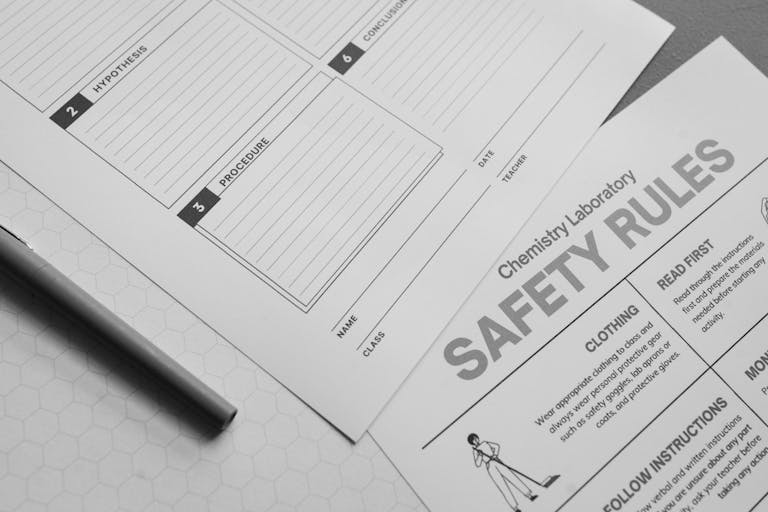The Science of Gratitude: How to Integrate Gratitude Exercises in Therapy (+1 Worksheet)
Introduction
Gratitude, often perceived as a simple expression of thanks, holds profound significance in mental health. Over the past decade, a growing body of research has underscored the powerful impact of gratitude on psychological well-being. As mental health professionals seek effective interventions to support their clients, integrating gratitude exercises into therapy has emerged as a promising approach. This article delves into the science of gratitude and offers practical strategies for incorporating gratitude practices into therapeutic settings. As a bonus, we’ve included a downloadable worksheet at the end of this article to help you implement these exercises in your practice.

Understanding the Science of Gratitude
Gratitude is more than just a fleeting emotion; it is a complex psychological state that involves recognizing and appreciating the positive aspects of life. Research has shown that gratitude is associated with numerous mental health benefits, including reduced symptoms of depression and anxiety, enhanced well-being, and improved relationships.
Emmons and McCullough (2003) conducted a ground-breaking study that demonstrated the beneficial impacts of gratitude on psychological health. Compared to those who concentrated on negative or neutral events, individuals who kept a gratitude journal reported higher levels of positive emotions, more optimism, and improved life satisfaction. These results set the stage for further investigations into the processes behind the beneficial effects of gratitude on mental health.
4 Psychological and Physiological Benefits of Gratitude
The practice of gratitude has been linked to several psychological and physiological benefits, including:
1. Reduced Symptoms of Depression and Anxiety
Gratitude has been shown to counteract negative thought patterns, which are often at the core of depression and anxiety. By focusing on positive aspects of life, individuals can shift their attention away from ruminative thoughts and develop a more balanced perspective.
2. Enhanced Emotional Resilience
Gratitude helps individuals build emotional resilience by fostering a positive outlook on life. This resilience enables them to better cope with stress and adversity, leading to improved mental health outcomes.
3. Improved Relationships
Expressing gratitude can strengthen interpersonal relationships by promoting feelings of closeness and trust. Grateful individuals are more likely to engage in prosocial behaviours, such as helping others, which in turn enhances social bonds.
4. Better Physical Health
Gratitude is associated with better sleep, reduced inflammation, and lower blood pressure. These physiological benefits contribute to overall well-being, highlighting the mind-body connection in mental health.
Integrating Gratitude Exercises in Therapy
Given the substantial benefits of gratitude, mental health professionals can leverage this powerful tool in therapeutic settings. Here are some effective ways to integrate gratitude exercises into therapy:
1. Gratitude Journaling
One of the most straightforward and effective gratitude exercises is maintaining a gratitude journal. Clients are encouraged to write down three to five things they are grateful for each day. This practice helps shift focus from negative to positive aspects of life, fostering a more optimistic outlook.
Research Support: A study by Rash, Matsuba, and Prkachin (2011) found that participants who engaged in gratitude journaling experienced significant increases in well-being and satisfaction with life.
2. The Three Good Things Exercise
The Three Good Things exercise is a simple yet powerful gratitude practice. Clients are asked to identify three positive events that occurred during the day and reflect on why these events were meaningful.
Research Support: A study by Seligman et al. (2005) demonstrated that participants who practiced the Three Good Things exercise for one week reported increased happiness and decreased depressive symptoms for up to six months.
3. Gratitude Letters
Writing a gratitude letter to someone who has made a positive impact on one’s life can be a deeply meaningful exercise. This practice allows clients to express appreciation and strengthen their connections with others.
Research Support: A study by Toepfer, Cichy, and Peters (2012) found that writing and delivering gratitude letters significantly boosted participants’ happiness and life satisfaction.
4. Gratitude Meditation
Gratitude meditation is a mindfulness practice that involves focusing on feelings of gratitude for various aspects of life. This practice can help clients cultivate a sense of peace and contentment.
Research Support: A study by O’Leary and Dockray (2015) found that participants who practiced gratitude meditation experienced significant reductions in stress and improvements in well-being.
5. Gratitude Visits
The Gratitude Visit involves physically visiting someone to express gratitude for their impact on one’s life. This exercise can be particularly powerful in enhancing interpersonal relationships and promoting positive emotions.
Research Support: Seligman et al. (2005) found that participants who engaged in a Gratitude Visit experienced a substantial increase in happiness and a decrease in depressive symptoms that lasted for several months.
To help you easily incorporate these exercises into your sessions, we’ve created a Gratitude Exercises Worksheet. This worksheet includes structured sections for clients to record their thoughts, making it easier for them to engage in these practices consistently.
Download the Gratitude Exercises Worksheet [Here]
Integrating Gratitude in Different Therapeutic Approaches
Gratitude exercises can be adapted to various therapeutic modalities, making them a versatile tool for mental health professionals. Here’s how gratitude can be integrated into different therapeutic approaches:
- Cognitive Behavioural Therapy (CBT): In CBT, gratitude exercises can help clients reframe negative thought patterns by focusing on positive aspects of their lives. For example, a client struggling with self-esteem issues might benefit from identifying and appreciating their strengths and achievements.
- Acceptance and Commitment Therapy (ACT): Gratitude can be used in ACT to promote acceptance of life’s challenges while encouraging clients to focus on the positive aspects of their experiences. This can help clients build psychological flexibility and resilience.
- Positive Psychology Interventions (PPI): As a cornerstone of positive psychology, gratitude exercises align well with PPIs, which aim to enhance well-being by focusing on positive emotions, strengths, and virtues.
Conclusion
The integration of gratitude exercises into therapy offers a powerful means of enhancing mental health and well-being. Backed by robust research, these practices can reduce symptoms of depression and anxiety, improve emotional resilience, and foster stronger relationships. As mental health professionals continue to seek effective interventions, gratitude stands out as a simple yet profound tool that can make a lasting impact on clients’ lives.
By incorporating gratitude exercises such as journaling, the Three Good Things exercise, gratitude letters, meditation, and visits, therapists can help clients cultivate a more positive outlook on life. Whether used in cognitive-behavioural therapy, acceptance and commitment therapy, or as part of positive psychology interventions, gratitude offers a versatile and impactful approach to mental health care.
References
Emmons, R. A., & McCullough, M. E. (2003). Counting blessings versus burdens: An experimental investigation of gratitude and subjective well-being in daily life. Journal of Personality and Social Psychology, 84(2), 377–389.
Rash, J. A., Matsuba, M. K., & Prkachin, K. M. (2011). Gratitude and well-being: Who benefits the most from a gratitude intervention? Applied Psychology: Health and Well-Being, 3(3), 350–369.
Seligman, M. E. P., Steen, T. A., Park, N., & Peterson, C. (2005). Positive psychology progress: Empirical validation of interventions. American Psychologist, 60(5), 410–421.
Toepfer, S. M., Cichy, K., & Peters, P. (2012). Letters of gratitude: Further evidence for author benefits. Journal of Happiness Studies, 13(1), 187–201.
O’Leary, K., & Dockray, S. (2015). The effects of two novel gratitude and mindfulness interventions on well-being. The Journal of Positive Psychology, 10(3), 184–194.







